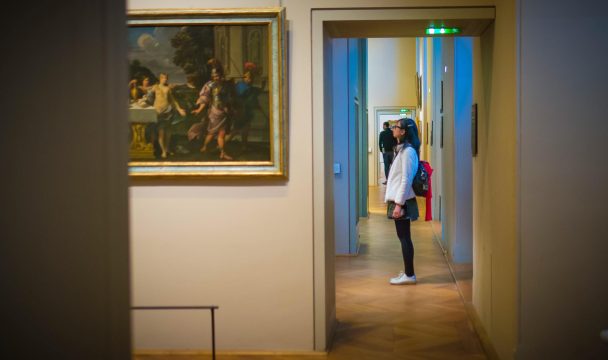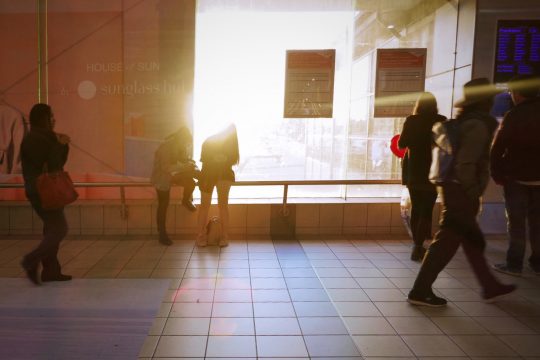Every year around this time (or earlier) in September, the Philippines will seem to want to remember Marcos and his dictatorship over the country. Since I haven’t been born during this era, much of what I knew was taught in school or by my parents (them having participated in the rallies themselves). My generation grew up without really knowing, just hearing about what happened. It was part of our history books, even of our Philippine Literature Curriculum in high school. We were required to read Dekada ’70, by Lualhati Bautista, watch the film, and have teachers describe what happened that lead to the TIME-covered “peaceful revolution”.
More recently though, it seemed like every anti-Marcos article published online is swarmed by “supporters”, especially with Marcos’ wife and children are still active in politics and (for whatever reason!) people are still voting them in office.
When I was young, I thought that everyone was taught the same version of history: Martial Law under Marcos was a period of countless human rights violations, with people either getting locked up (most famously Ninoy Aquino) or beaten and killed. The country’s money was stolen by Marcos and his family, shared among their cronies. The movie version of Dekada 70′ was released back then, and it seemed like a given that most people watched it. In the past few years, however, more and more I see published articles about Marcos and his regime swarmed by supporters who continuously defend him and praise his reign. Their arguments would usually include his presidency being a “more peaceful time”, that only people in Manila were fighting against him, and that the economy was progressing because of his leadership. Somehow it was so easy to conveniently forget about the deaths, all the youths that fought for freedom of speech, to forget about all the monopolies formed during his time and all the wealth stolen by his family and cronies. So convenient, even, to forget all the debt incurred and even the reason why the country seemed to be so ‘rich’ during that time.
Under martial law, Marcos suspended then revamped the constitution, silenced the media, and used violence and oppression against political opposition. He nationalized and monopolized increasing portions of industry and further increased spending on patronage. Throughout this time, the US and international organizations such as the World Bank and IMF generously supported the Marcos regime with aid and loans. Marcos was able to exchange solid commitment to the Philippine-US alliance with significant US aid, due to US Cold War interests of having military bases strategically located in the Philippines. It is often argued that a great proportion Marcos’ patronage was funded by US aid.8 The World Bank and IMF regarded Marcos as emulating tactics of Lee Kwan Yew’s successful authoritarian regime in Singapore, making the Philippines a “special focus” area to target funding.
For us, the younger generation, Martial Law is like a memory to be remembered, a past we revisit a few days in a year. Will remembering the deaths of students who died (or disappeared) during that time inspire us, our generation, to live passionately and die courageously for principles and ideals that are worth fighting for? Every once in a while I’d see published articles locally and globally praising how well the economy back home is doing. But every day living in the city only seemed to get worse: traffic so bad compared to when I was younger, no improvement in public transportation, still a lot of murders and kidnappings first thing in the morning news. Wherever this “economic progress” was, it wasn’t so easy to spot out in the public. I couldn’t really see drastic changes in the majority of the population (which is still the ‘masa’, the lower-income, the poor) and in fact some things only seemed to get worse.
What good is not forgetting when everything stays the same? Looking at the list of candidates for the presidential elections, I have no hope for the country back home. Even if there is no martial law, there is still no justice. No justice for all the massacres and deaths that happened in the past few years, and probably never will be. If back then our parents marched against Marcos, I cannot imagine the same happening with my generation. It could be that some of us are too jaded or are like me who see the system as too corrupt to even fix or change. There was wisdom in those who fought during that time, for they realized the importance of toppling down (or trying to fight) a system that chokes. The government right now, with the same cancer that Rizal died for still deeply ingrained in the system, isn’t all too different from the corrupt government under Marcos. There is no strong political leader back home, but there is also no passionate demand from the people for a radical change. I don’t see things changing for the better in the next five years, and Marcos’ Martial Law will continue to be a memory drowned out by celebrities, movies, short-term gains, and false promises.






Leave a Reply